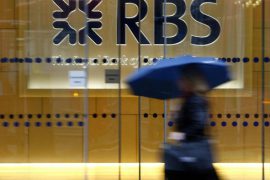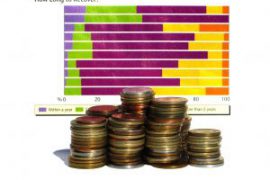Figures published by the government this week showed a sharp increase in the rate of UK inflation. The Consumer Prices Index now stands at 3.7 per cent which means that there is currently only one savings account in the UK that gives savers a return that actually keeps up with the rate of inflation.
Sharp rise in inflation
The Office for National Statistics attributed the 0.4 per cent rise in inflation between November and December on increases in petrol and diesel prices, air fares and food costs which rose by 1.6 per cent. The biggest increases were for bread, cereals, vegetables, cheese, eggs and milk.
With the Consumer Prices Index now at 3.7 per cent, it also means that basic rate tax payers need to earn 4.625 per cent gross on their savings in order to exceed the tax deduction and the rate of inflation.
Only one account offers an inflation busting return
The Guardian reported this week that only one account – a Coventry building society bond fixed for five years at 4.75 per cent – allows basic rate tax payers to keep ahead of inflation. However, investors have to lock their money away for five years; a risky strategy with interest rates set to increase in the next few months.
Whilst some savings accounts pay a much higher rate of interest – HSBC have an account that pays 10 per cent – these are regular saver accounts which limit the amount of investment. They are not designed for savers looking to maximise the return on a lump sum investment.
Higher rate tax payers are really struggling at the moment as they need to earn 6.17 per cent gross. Other than these regular savings accounts, there are no products that will meet or exceed this rate.
Reduce debt first
With interest rates remaining low, many experts are suggesting to savers that they use their funds to repay debt first, rather than building up savings. Andrew Haggar from a leading comparison website told the Guardian that savers ‘best option is to use any disposable income to reduce any outstanding debt, starting with the most expensive first’.




